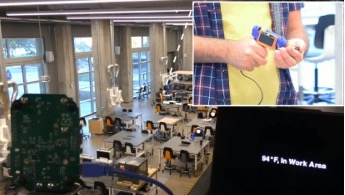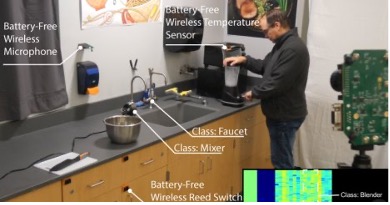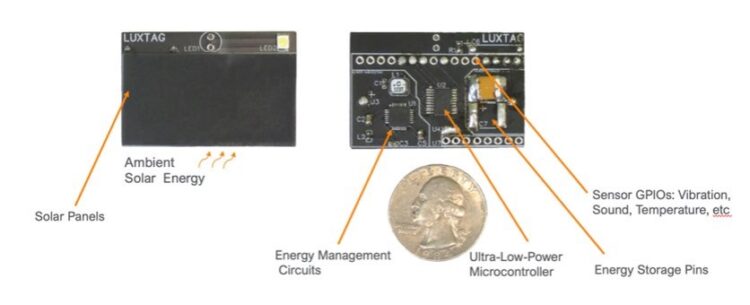Long-Range, Battery-Free, Wireless Sensing with Neuromorphic Cameras (NeuroCamTags)
The Problem
Smart technology and Internet-of-things devices often promise to improve various aspects of modern life by inferring actions and context through visual data. Such camera and sensor embedded devices are often practically limited by the number of sensing modalities (touch, temperature, pressure, etc.) that they can track. For smart-devices which can keep track of richer data, such devices are often extremely bulky, have high power consumption, and rely on batteries, inducing high maintenance costs for devices which already have a rushed obsolescence timeline.
The Solution
Researchers at the University of Tennessee have developed a hardware platform designed to build a collection of communicating, battery-free devices for monitoring and facilitating smart environments. The hardware platform consists of ambient-light powered devices capable of sensing user interactions through event-camera input and transmitting the data wirelessly. These devices ("NeuroCamTags") can be incorporated into a wide variety of environments for rich data capture and interaction at a fraction of the power and monetary cost.



Benefits
| Benefit |
|---|
| High recognition accuracy of user interactions (93.9%), with low false positive rate (3.4%) |
| Minimal ambient light levels needed for battery-free operation (300 lux); 0low cold-start times for small capacitor devices |
| Tags can function from distances of up to 200 feet |
More Information
- Emma Vetland
- Assistant Technology Manager, Multi Campus Office
- 865-974-1811 | evetland@tennessee.edu
- UTRF Reference ID: 24087
- Patent Status: Patent Pending

Innovators
Sai Swaminathan

Assistant Professor, Min H. Kao Department of Electrical Engineering and Computer Science, UT Knoxville
Dr. Swaminathan is an assistant professor in the Min H. Kao Department of Electrical Engineering and Computer Science (EECS) at the University of Tennessee (UT). He received his Ph.D. from the Human-Computer Interaction Institute in the School of Computer Science of Carnegie Mellon University. He has published award-winning work at top-tier HCI venues, including ACM CHI, IMWUT (UbiComp), UIST, and CSCW. His work has also been featured in news outlets such as the New Scientist, Makezine, and HacksterIO. He has worked at numerous research institutions such as the Manufacturing Science group at Oak Ridge National Lab (ORNL), Microsoft Research, INRIA, and Xerox Research.
Read more about Sai Swaminathan